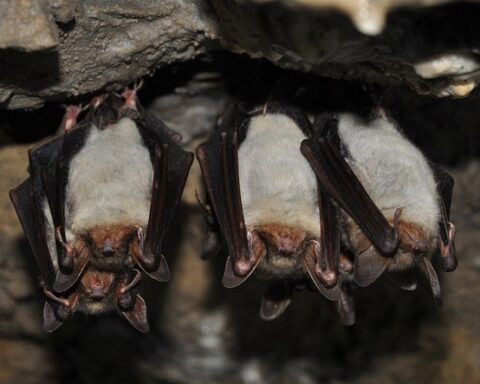Introduction
Even after leaving the farm, the way dogs are produced and raised has an impact on both the puppies and their new owners for the remainder of their lives. A dog’s happiness and health can depend on how well it is raised and cared for.
Dog breeding and irresponsibly caring for dogs can cause them to have health and behavioral problems, as well as stress for their owners. Most of the time, people who buy a dog from a good breeder have to sign a contract before getting one.
What Is a Dog Breeder Contract?
The Contract of Dog Breeder was made to give dog buyers more power and help them avoid the problems of adopting a dog from a dishonest breeder. The breeder or vendor’s information might help potential buyers determine whether or not to purchase a dog they’ve seen for sale. People who breed dogs use a contract to show how long and hard they worked to get them.
Signing a contract is a warning of the huge responsibility you are taking on and enables you to remember what your breeder told you during your many visits and phone calls, but which you may have been too stressed or preoccupied to understand and remember.

What Does a Breeding Contract Include?
When you buy a puppy, you’ll get a contract from the breeder that says the puppy’s AKC registration number and the names and registration numbers of the puppy’s father and mother. However, if you haven’t seen a breeder contract before, you may not know about some common things. They say the following:
Show vs. Pet
Most breeder contracts will make clear that “quality of pet” and “quality show” puppies are two different types of puppies (or, more accurately, “show potential,” as no breeder can foresee how a puppy will develop).
Contracts for show prospects can be very different, depending on how much the breeder wants to be involved. When you buy a puppy from a specific breeder, they may say that they want to see the puppy at a certain age and will show it personally if it grows up as planned. Other breeders may say that you need to hire a professional to show your dog.
Return-To-Breeder Clause
They don’t sell puppies to get them back: an eternally home is what they’re meant to be. Moreover, life happens to the best of us, and several things can make it difficult for a dog owner to keep their pet, even if they do everything they can. These include illness, skin problems, relationship breakdown, displacement, and money problems.
Spay and Neuter
Most breeder contracts say that dogs that are good for people will be spayed or neutered. However, as animal health opinions and science change, the age at which surgical disinfectant may be done may change a lot. Some breeders say that owners should wait until the dog has grown up and the bone growth has closed, which usually takes about a year for most breeds and 18 months for bigger dogs.
Health Guarantees
Pups are not widgets. If they had been, they wouldn’t be nearly as huggable, and a “faulty” one would only make people angry, not sad. As with people, things don’t always go as planned for puppies.
Can a Dog Breeder Contract Be Enforced?
Anyone who breeds or buys a dog has the right to enforce a contract if it is fair. Breeders often micromanage the buyer’s care and have unrealistic expectations when they make a contract that is not fair. Requests that aren’t reasonable might include taking pictures of the dog every week as it grows. A lot of work goes into this, but forgetting one week can be very stressful. This criterion is also irrational in general. A breeder doesn’t want the buyer to send their puppy pictures every week to show how to care for it.
The breeder might be too strict with the buyer, which could mean that the new owner doesn’t say how their pets are cared for. Micromanagement can put limits on the brand of food, sizes of portions, plans of training, and even habits of walking. The nicest elements of dog ownership are making sure your pet receives the care it needs and determining what is best for them. If these conditions are agreed to in a contract, some of the joys of owning a dog will be lost. In addition, no dog can get the best care from a contract that can’t be changed. Only their health and tastes may need a change in how they eat and how much they move. As a result, a contract can’t be considered valid if it has unreasonable terms.
Do Dog Breeder Contracts Hold Up in Court?
If you think a pet store or breeder has broken a promise, you can file a lawsuit to get a refund or a new animal. If your state has a cash limit for small claims, you might be able to go to small claims court. If you are a buyer and some parts of the contract make you feel uncomfortable, talk to the breeder about it. They might be willing to make changes for you. Keep in mind that dog contracts aren’t very likely to be legally binding, so a good buyer is more likely to succeed.
If the contract is real, you agreed to return the dog if you couldn’t keep it for a long time. A contract is made when two people decide to work together. If you don’t, the breeder may sue you for money. When you buy a pet, you have the same rights as buying any other good or service. Essentially, this implies that if your pet becomes ill or dies shortly after purchase, you may be eligible for a refund or an exchange for another puppy.
Parting Shot
Regardless of how much research you do get, a dog is an act of trust. For both parties, it is a matter of faith that the breeder has done their best and that you would care for your new family member to the best of your abilities, ideally, long enough to see its muzzle grey. This confidence is reciprocated. Ideally, the breeder should be accessible to answer any questions or concerns and even provide a shoulder to weep on after the process. You may want to rethink signing a contract if it looks like the relationship between you and the breeder will be more confrontational than caring.










